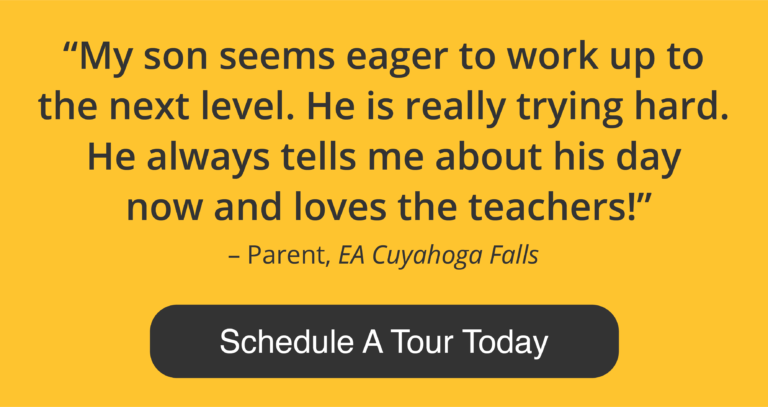Constant meltdowns when it’s time to go to school, followed by breakdowns at the end of the school day, are draining for a parent.
If your child has autism or ADHD, there may be more than stubbornness below the surface. Your child’s behavior is a sign they’re struggling.
If you’re realizing, “My child hates school,” you’re likely wondering what in the school environment or experience is creating this level of stress for your child and family.
The answer may be the school environment’s inability to meet your child’s individual needs.
What can you do to help? By considering this challenge from both a parent’s perspective and a teacher’s perspective, you can find solutions to help your child.
Why do kids hate school?
Before discussing solutions for a child who hates school, consider first why this might be happening.
The answer is complex.
Sometimes, it lies with the child.
Sometimes, it lies with the school.
Discovering the underlying cause is the first step toward finding a solution.
Here are some common reasons for school refusal, especially for kids on the spectrum:
School environment
If your child has an undiagnosed disability or neurological difference, the school environment can be overwhelming.
It can be an unpredictable, high-pressure atmosphere filled with sensory input.
School also requires kids to read social cues, and those with autism or ADHD may struggle with this, becoming frustrated and discouraged.
Such children often feel they can’t succeed and may start to hate going to the place that makes these feelings worse.
Sensory overwhelm
One reason the school environment is overwhelming for some children is due to sensory sensitivities.
Some children are more sensitive to sensory input, which comes from everything from the lights in the building to the sound of other children in the room.
For these children, the constant sensory input in the school experience quickly overwhelms them.
Anxiety
The sense of overwhelm created by sensory overload and the school environment’s pressures can trigger feelings of anxiety.
When a child feels anxious, they won’t want to attend school.
They may also exhibit behavioral problems, like meltdowns or acting out in class. You may be wondering, “Is autism or anxiety causing this problem?”
The answer may include both.
Disruptive behaviors
This combination of sensory overload and heightened anxiety is the perfect storm for disruptive behaviors.
These overwhelming emotions hurt a child’s ability to reason through behaviors, and they lash out or have meltdowns as a result.
These can look like temper tantrums, when in fact they are a response to being overwhelmed.
While these behaviors are not the child’s fault, especially if the child has autism or ADHD, most teachers can’t allow them in an overly full classroom.
As a result, the child receives negative consequences for their behavior, which adds to the feeling of hating school.
They begin to feel they are the problem, lowering self-esteem and further increasing anxiety.
Communication challenges
Lowered self-esteem and increased anxiety can trigger school refusal, but sometimes kids can’t communicate the reason why they’re feeling these negative feelings, especially if they have autism or ADHD.
Your struggling child may not be able to say that they’re feeling overwhelmed or anxious. Instead, they will simply say they hate school or refuse to go.
As a parent, you might already see their behaviors as a cry for help, but as a teacher, finding a way to assist in a system that’s already stretched thin feels impossible. So, the cycle of overwhelm, anxiety, and school refusal continues, and your child continues to struggle with both behavior and mental health.

How to help a child who hates school
What can you do if this is your child? Your child does need an education, and they have a right to an education that accommodates their disability or learning difference.
If you’re having trouble getting them to go, here are some practical ways to encourage school acceptance and, potentially, make the experience better:
- Find the cause:
If you can, discover what’s making your child feel overwhelmed. Is there bullying, problems with a teacher not understanding their disability, complex schedules, or unpredictable social cues creating anxiety? Consider having an evaluation done to see if there is an underlying condition making your child’s struggle more intense. - Be empathetic:
Children on the spectrum often feel unheard. Empathize with their feelings, even if you can’t allow them to stay home. - Create a partnership:
If your child’s teacher is supportive, create a partnership to help your child feel more comfortable. Get the teacher on board with understanding your child’s unique needs, and provide suggestions on how your child can feel more welcome and comfortable in the classroom. - Consider gradual steps:
Sometimes children hate school so much that they refuse to go. If your child’s been home for a bit, consider gradually stepping back into the classroom setting in stages to help them feel comfortable.
- Bring on mental health support:
Kids on the spectrum often end up feeling like their struggles are all their fault, and they are a problem. Getting mental health support from a qualified therapist who understands autism, anxiety, and ADHD can help you work through problematic behaviors and self-esteem issues. - Focus on social emotional learning:
Children with autism may struggle with understanding social cues and emotional needs. Adding social emotional learning can give them tools to make the school experience better. - Consider an alternative school:
Even the best teachers often aren’t equipped to help children with ADHD or autism in a traditional classroom setting. The teacher may have 30 or more students who also have unique needs, so even teachers with the best intentions may not have time or freedom for highly personalized attention. Alternative education designed specifically for children on the spectrum can often change a child’s attitude about school.
If you’re facing this common concern, help is available.
At Education Alternatives in Ohio we understand the challenges of students on the spectrum that make a traditional classroom overwhelming.
Our school was started to provide a safe and supportive student environment where every child feels accepted and supported, so that school becomes enjoyable.
What to say to a kid who doesn’t want to go to school
If you’re getting ready for school one morning and your child refuses to go, what can you say at that moment to make the situation better?
Here are some common scenarios and scripts you can use to encourage your child to go to school while still providing the support they need.
“I hate school”
If your child says this, empathize and ask for more information. “I know school can feel hard sometimes. Is there something specific that’s making you feel this way?”
“I don’t feel like going”
Respond to this by saying, “I wonder if you’re having a problem at school that we need to talk about. Let’s plan to talk when you get home tonight.”
“I’m too tired”
Ask your child, “It seems like you’re sleeping well, so is there something using up a lot of your energy?”
“It’s too hard for me”
Ask, “What’s the most challenging thing you’re facing?” Then, later, provide solutions and support.
“I won’t go”
This is one of the harder ones to address. You’ll have to evaluate whether it’s better for your child’s mental health to take a day off or if you need to use one of the phrases above to help them feel supported enough to go to school.
Reduce overwhelm by considering EA Schools
It’s tempting as a parent to feel like school isn’t supporting your child well.
While this may be true, it’s not the teacher’s fault.
Traditional education structures aren’t designed for kids with learning differences.
Instead of trying to make your child fit a school setting that’s not designed for their needs, consider finding a school that suits your child.
At EA School, we have a setting designed specifically for the needs of children with autism and ADHD. Each child in our Day Treatment Program has an Individualized Education Plan (IEP) that’s closely followed using appropriate accommodations to help them achieve their educational goals.
We integrate mental and behavioral support services to ensure academic, social, and emotional needs are all met.
We partner with REACH Behavioral Health to provide access to licensed therapists, who come to the school to support students with emotional regulation during the school day.
This emphasis on educational accommodations and behavioral health services combines with extremely small class sizes.
Teachers have the freedom to give each student one-on-one attention when they have class sizes of 8 or fewer.
At EA School, we believe every child deserves to feel accepted, even on their hardest days. Is autism or anxiety causing your child distress and making them hate school?
Contact us today to learn more about Education Alternative’s Day Treatment Program and how it can help your family.

